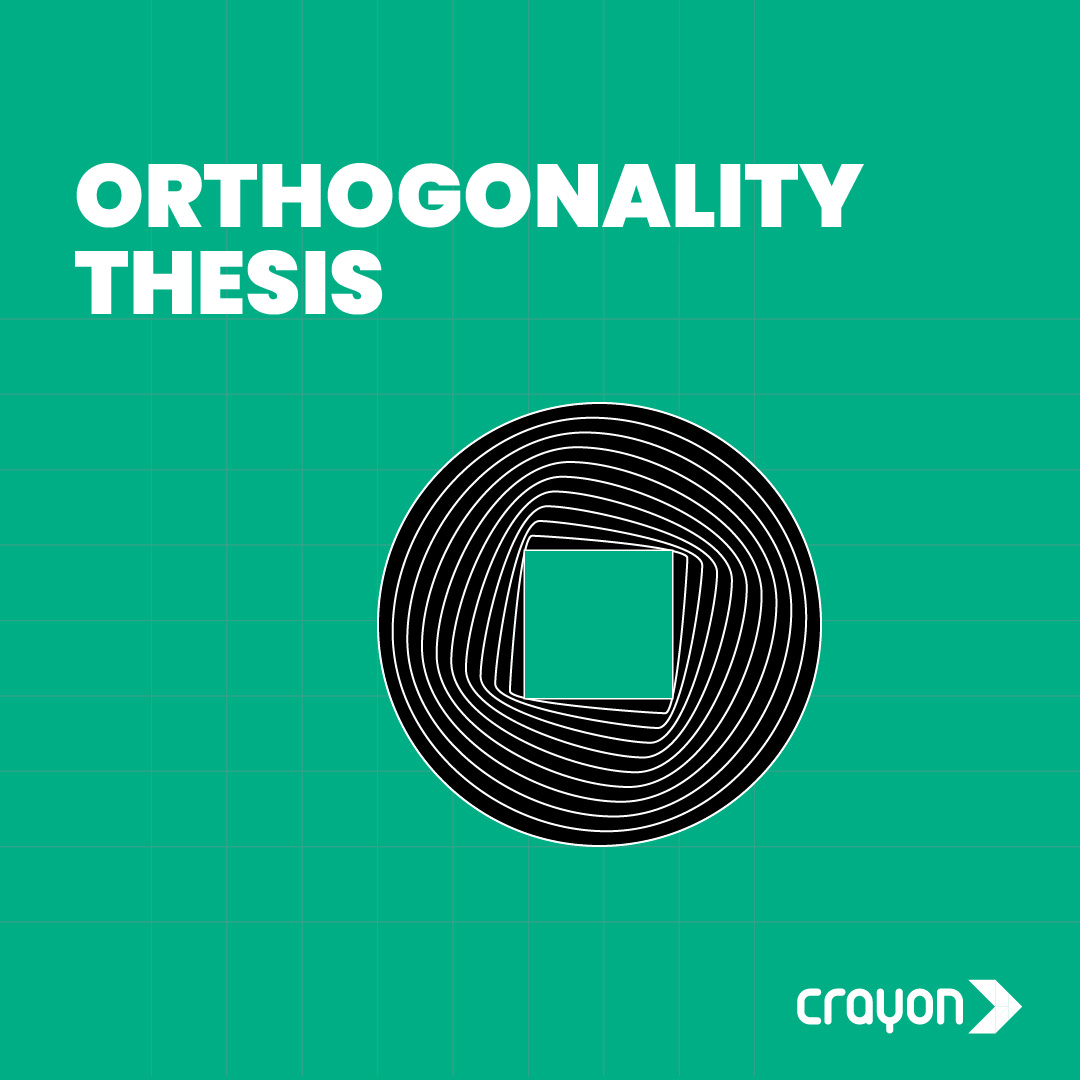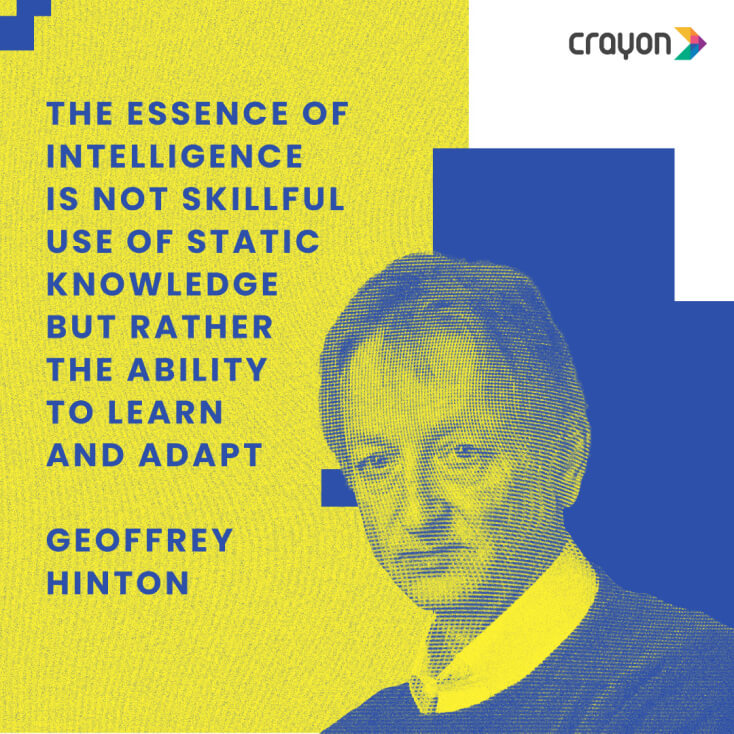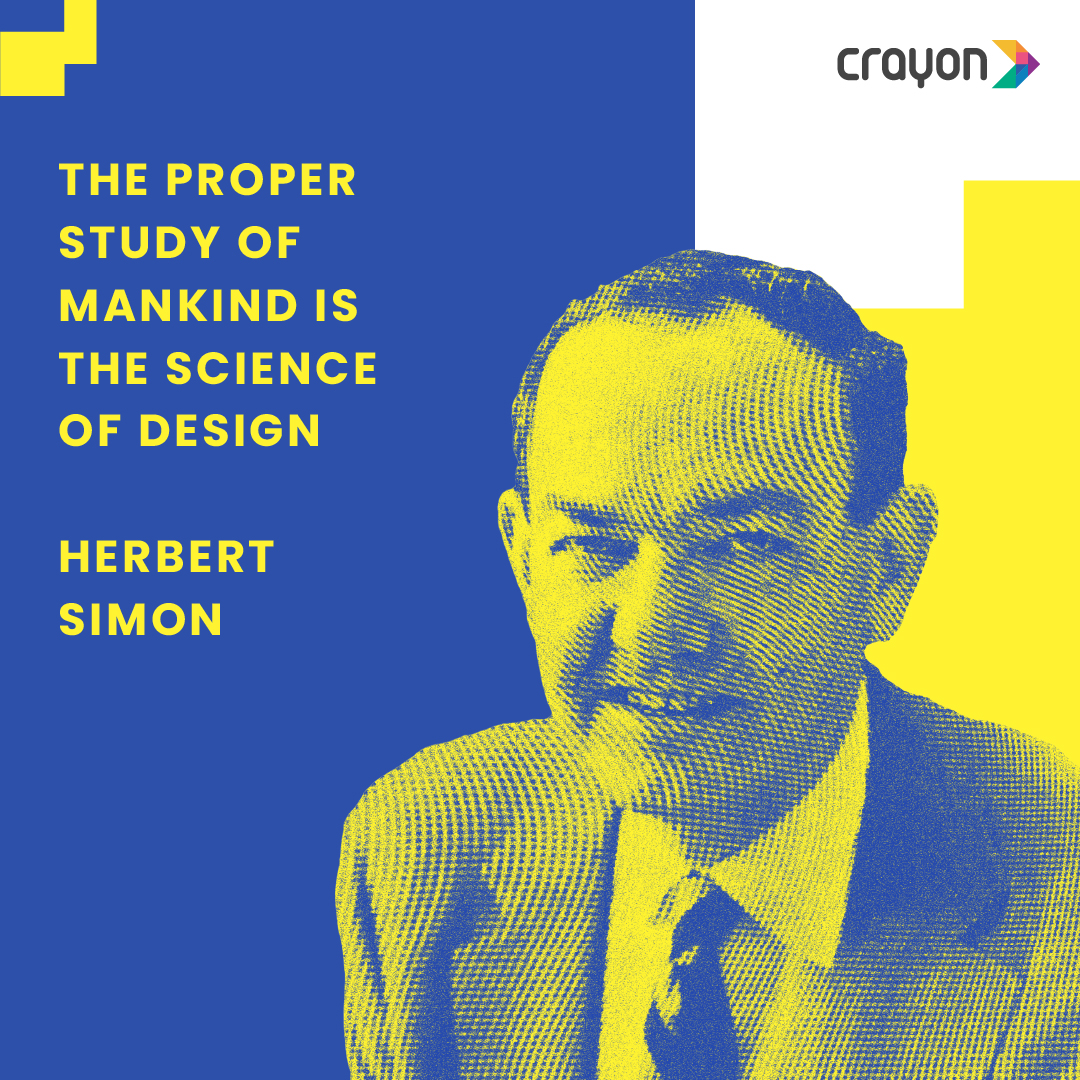
Orthogonality Thesis
October 19, 2023
Pre-Trained Models
October 25, 2023On The Shoulders Of
Legends of AI: Geoffrey Hinton
Published October 20, 2023 | The Crayon Team
Geoffrey Everest Hinton is a pioneering figure in artificial intelligence and deep learning. Hinton’s work has profoundly impacted the development of neural networks and machine learning, making him one of the most influential figures in the AI community.
Hinton’s career goes back to the 1970s when he began exploring the concept of artificial neural networks, drawing inspiration from the human brain’s structure and functioning. His groundbreaking research on backpropagation, a method for training neural networks, laid the foundation for modern deep-learning techniques.
Throughout his career, he significantly contributed to various aspects of machine learning, including Boltzmann machines, autoencoders, and deep belief networks. His work on deep learning algorithms has revolutionized the field and has been instrumental in the rapid advancement of AI technology in recent years.
Hinton’s career goes back to the 1970s when he began exploring the concept of artificial neural networks, drawing inspiration from the human brain’s structure and functioning. His groundbreaking research on backpropagation, a method for training neural networks, laid the foundation for modern deep-learning techniques.
Throughout his career, he significantly contributed to various aspects of machine learning, including Boltzmann machines, autoencoders, and deep belief networks. His work on deep learning algorithms has revolutionized the field and has been instrumental in the rapid advancement of AI technology in recent years.

Hinton won the Turing Award in 2018 for his pioneering work in neural networks and deep learning. He quit his job as a vice president and engineering fellow at Google in May 2023, after a decade with the company, so he could speak freely about the risks posed by AI.
In a recent interview, he warned that rapidly advancing AI technologies could gain the ability to outsmart humans in the next five years. If that happens, AI could evolve beyond humans’ ability to control it, he added. “One of the ways these systems might escape control is by writing their own computer code to modify themselves. And that’s something we need to seriously worry about.”
Humanity is likely at “a kind of turning point,” said Hinton, adding that tech and government leaders must determine “whether to develop these things further and what to do to protect themselves if they [do].” When one of the Godfathers of AI says something of that magnitude, it certainly requires close attention.
In a recent interview, he warned that rapidly advancing AI technologies could gain the ability to outsmart humans in the next five years. If that happens, AI could evolve beyond humans’ ability to control it, he added. “One of the ways these systems might escape control is by writing their own computer code to modify themselves. And that’s something we need to seriously worry about.”
Humanity is likely at “a kind of turning point,” said Hinton, adding that tech and government leaders must determine “whether to develop these things further and what to do to protect themselves if they [do].” When one of the Godfathers of AI says something of that magnitude, it certainly requires close attention.
Recent Blogs
Subscribe to the Crayon Blog. Get the latest posts in your inbox!



